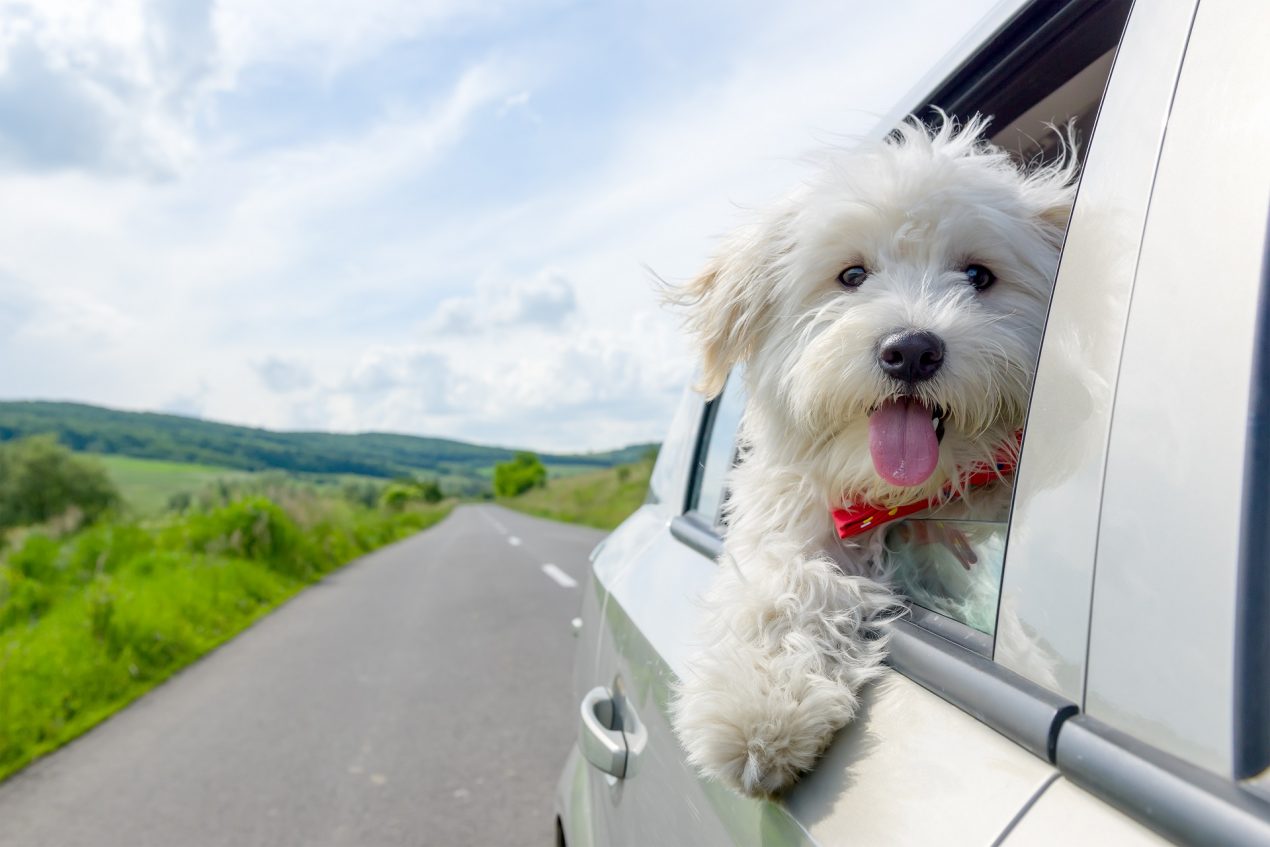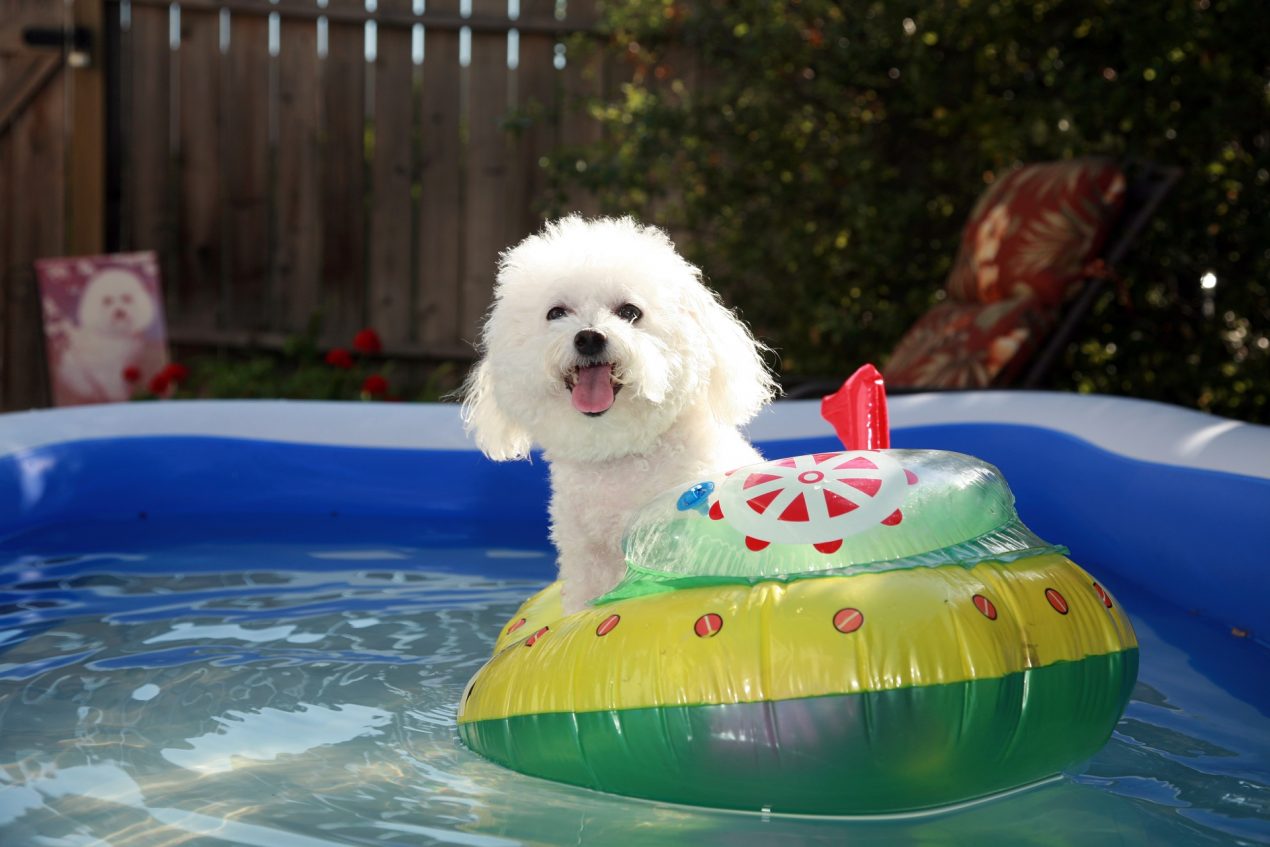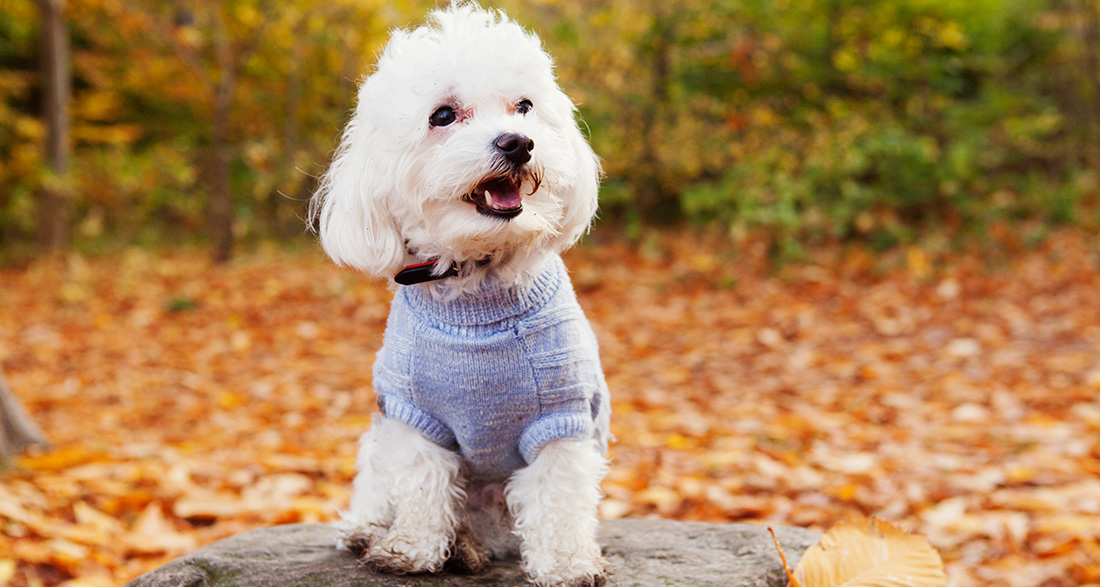Small dogs are often just smiled at. But anyone who does so is doing them an injustice. Because so-called lap dogs such as the Bichon Frisé, often called Bichon Frise for the sake of simplicity, are intelligent and docile. If you are looking for the ideal family dog, you can find it in this curly little dog.
History of the Bichon Frisé
The history of the Bichon Frisé goes back to ancient times. Depictions on vases and sculptures bear witness to the fact that small dogs with a poodle-like appearance were already known in ancient Greece and the Roman Empire. They also appear again and again in historical writings. Aristotle, for example, reported on dogs with conspicuously small stature.
The Roman natural scientist Pliny even advised taking the small dogs to bed with you if you had a stomach ailment. They were used as a living hot water bottle, so to speak, with the positive side effect that the lively companions were not only good for the body but also for the soul. Small dogs that accompanied people without taking on hunting or guard dog duties were already widespread throughout the Mediterranean region at that time.
The direct ancestors of the Bichon Frisé probably came from Tenerife. Italian sailors brought them to the port cities in the 14th century and the small dogs quickly became the ladies’ favorites. They were called Bichon Frisé. “Bichon” can be translated as lap dog. Bichons were already widespread and enjoyed great popularity in the aristocratic world. They were particularly popular at the French court. “Frisé” translates as curly.
It flourished in the 15th and 16th centuries, but then fell somewhat into oblivion. It was not until after the First World War that the curly lapdog was remembered again in France and Belgium and targeted breeding began. The breed standards were established in 1933, and in 1934 the Bichon Frisé was registered as a breed with the umbrella organization of French dog breeders. The American Kennel Club first recognized the breed in 1972.
Breed Overview
GROUP: Non-Sporting
HEIGHT: 9.5 to 11.5 inches
WEIGHT: 12 to 18 pounds
TEMPERAMENT: Affectionate, friendly, playful
COAT: Long, curly
COAT COLOR: White, white and apricot, white and buff, white and cream
HYPOALLERGENIC: Yes
LIFE SPAN: 14 to 15 years
Nature and character
Bichon Frisés are happy dogs that like everyone and everything. They also like to make friends with other animals. They love children and enjoy playing with them. This intelligent dog learns tricks easily. They are very even-tempered and are not easily disturbed. It is often referred to as an “alarm system” because it is alert without being a barker. In addition to his active side, he also likes to cuddle.
But you shouldn’t underestimate the little one. On the one hand, he has power and often wants to be active. He is usually playful right into old age. On the other hand, he tends to be stubborn and is not easy to train. He is also very sensitive and does not like to be alone. When he is separated from his humans, he suffers, even if it is only for a few hours.
| Affection Level | High |
| Friendliness | High |
| Kid-Friendly | High |
| Pet-Friendly | High |
| Exercise Needs | Medium |
| Playfulness | High |
| Energy Level | Medium |
| Trainability | Medium |
| Intelligence | Medium |
| Tendency to Bark | Medium |
| Amount of Shedding | Low |

Acquiring a Bichon Frisé
A Bichon Frisé does not make any great demands and it can easily give the impression that it simply runs along in family life. Nevertheless, there are a few things you should bear in mind if you want a small curly-haired dog as a companion.
What should I look out for when buying?
Small dogs like the Bichon Frisé are prone to hereditary diseases. It is therefore particularly important that you look for a reputable breeder. The best way to find one is through a breeding club. Don’t just rely on pictures on the internet. An honest breeder who puts the welfare of the dog first will give you the opportunity to visit them and get to know the puppy and, above all, the mother.
You may also be able to meet the sire if he was not the stud dog from another kennel. You should accept the offer and get an idea of where and how your future roommate was allowed to spend his first weeks of life. After all, few things are as formative for a dog as the first few weeks of its life. A reputable breeder will only breed with healthy dogs that have been tested for hereditary diseases and allow the puppies to grow up in a loving environment.
Development and training of the puppy
Bichon Frisés are considered easy to train and ideal beginner dogs. Nevertheless, you should find out a little about dog training beforehand. Although Bichon Frisé puppies are docile, they don’t want to be pure recipients of commands and some little ones can be stubborn if they don’t understand a command. Bichon Frisés are also very sensitive and suffer when their owner is impatient and loud.
Bichon Frisés require a great deal of patience. Attending a puppy kindergarten and dog school is therefore a good way forward, especially for new dogs. But the dogs also benefit a lot from this, as they get to know other dogs and their social behavior is encouraged.
How do I keep a Bichon Frisé?
A Bichon Frisé does not make any great demands on its owner. He even feels at home in a city apartment if you take him for daily walks in the park or out in nature and play with him. He is happy as long as his humans are with him.
You must bear this in mind. You won’t be able to go on vacation without a dog with a Bichon Frisé. And not for many years, because Bichons can live up to 17 years. Even if you only leave him alone for a few hours, he may howl the whole time or tear up your home, as he is very people-oriented and extremely affectionate.
Activities with the Bichon Frisé
If you think a lap dog just lazes around on the sofa all day, the Bichon Frisé will prove you wrong. These little dogs are real powerhouses. They love long walks and excursions with their humans. They also enjoy dog sports such as agility for small dogs. But they are also happy to fetch balls in the garden or play other games with their humans. They also insist on this. You must therefore plan enough time every day for fun and games with your Bichon Frisé.

Health and care
Bichon Frisés have a pure white, corkscrew-like wavy coat that grows about ten centimetres long. To keep it this beautiful and prevent it from matting, you need to brush it daily. Bichon Frisé do not shed, so they do not lose any hair and are therefore considered a good dog for allergy sufferers. However, this means that you will have to take them to the groomer regularly to have them clipped. You also need to check and clean their ears regularly. Ears and eyes must be kept free of hair, otherwise they can easily become inflamed.
The small Bichon Frisés are very delicate and fragile due to their stature and bone structure. You must be aware of this when handling them. They must not be handled roughly as this can easily lead to broken bones. Hereditary diseases that can occur in Bichon Frisés include problems with the kneecap, hips and dysplasia. The small dogs also sometimes have problems with their hearts. However, Bichon Frisés generally have robust health and can live to a very old age. With a lot of love and good care, Bichon Frisés have a life expectancy of 15 to 17 years. The oldest Bichon Frisé to date lived to be 19 years old.
Interesting facts
Bichon Frisés were the favorites of ladies at European courts during the Renaissance. They were particularly popular in France. The ladies perfumed their dogs and adorned them with colorful ribbons.
Do you have a Bichon Frisé or want to get one? Tell me in the comments what you think makes them so special!


